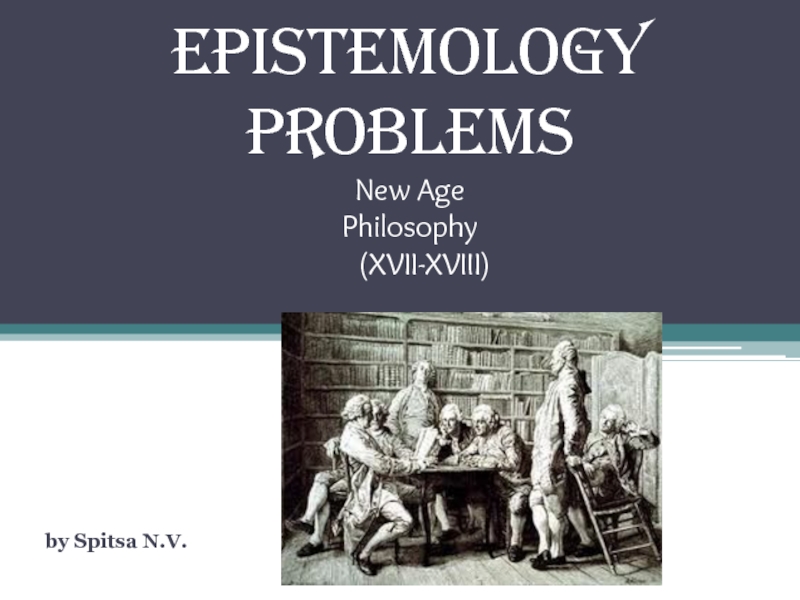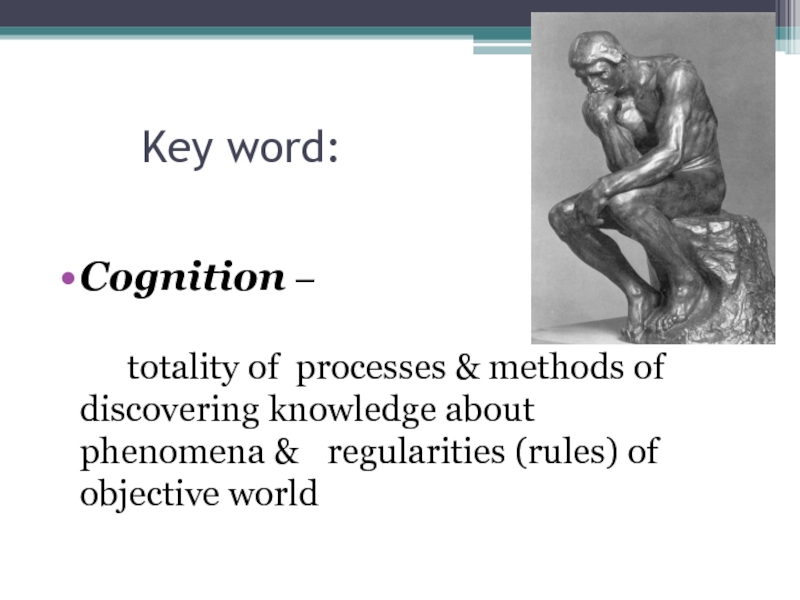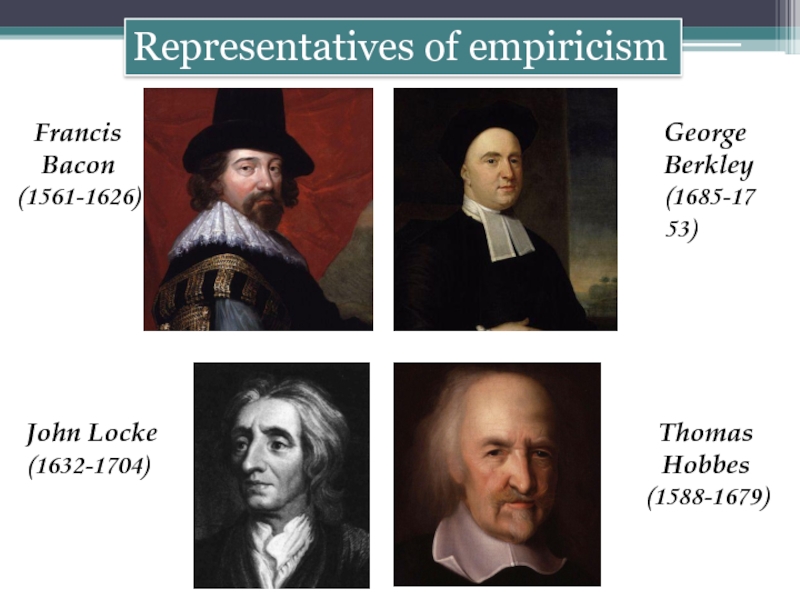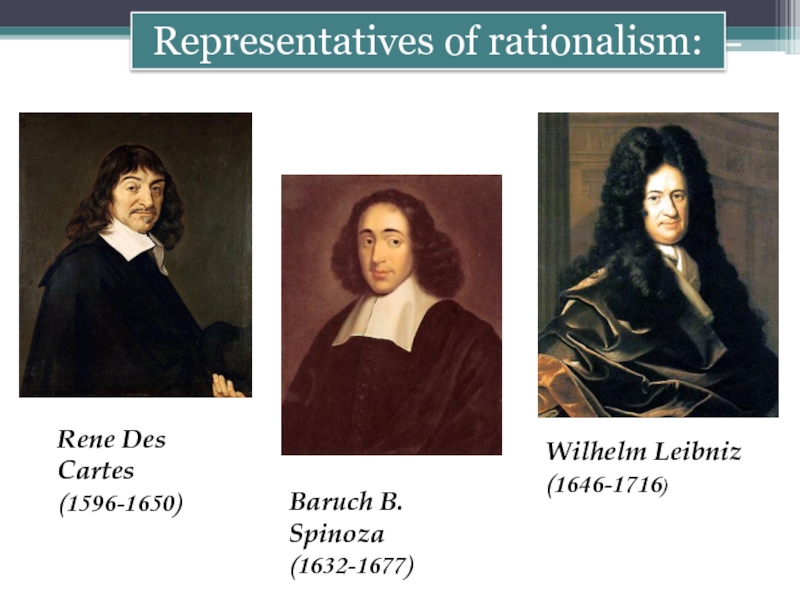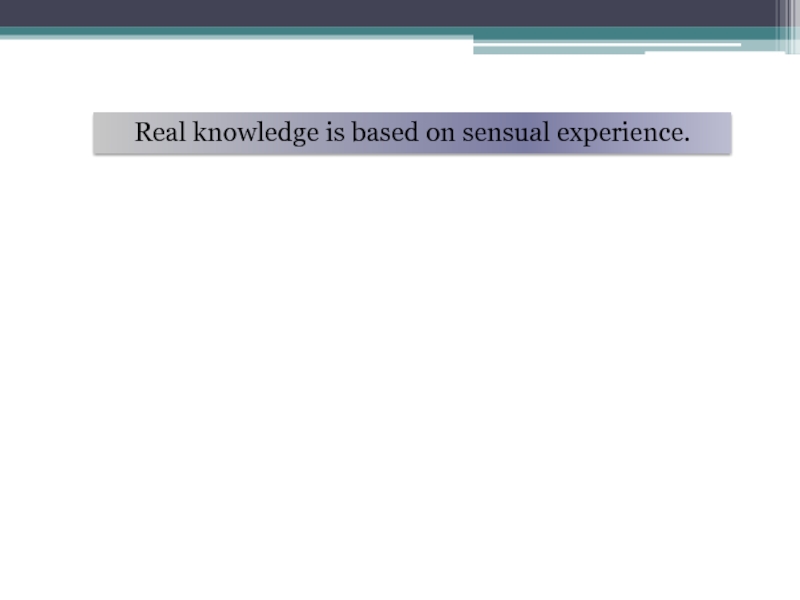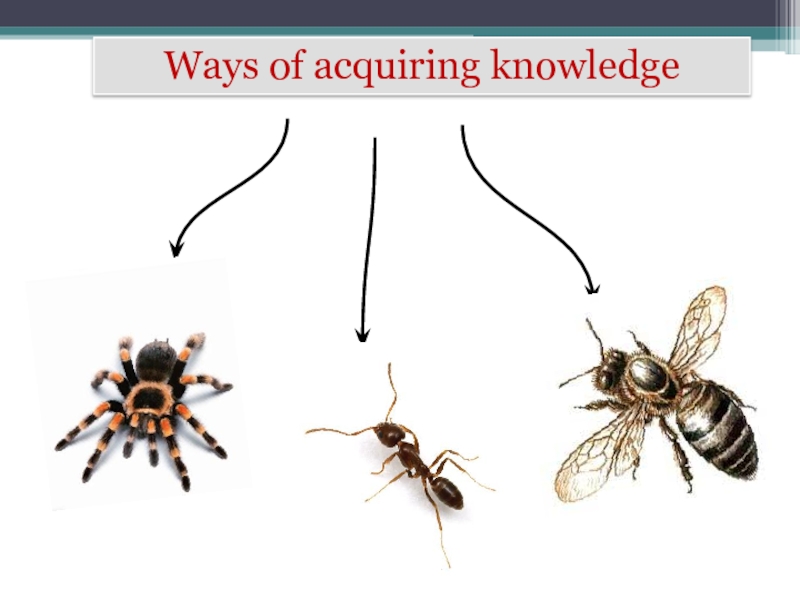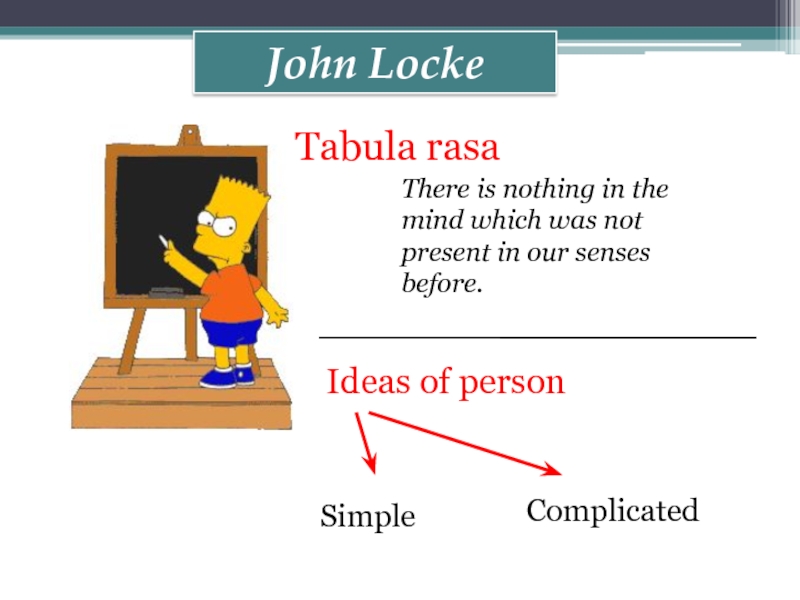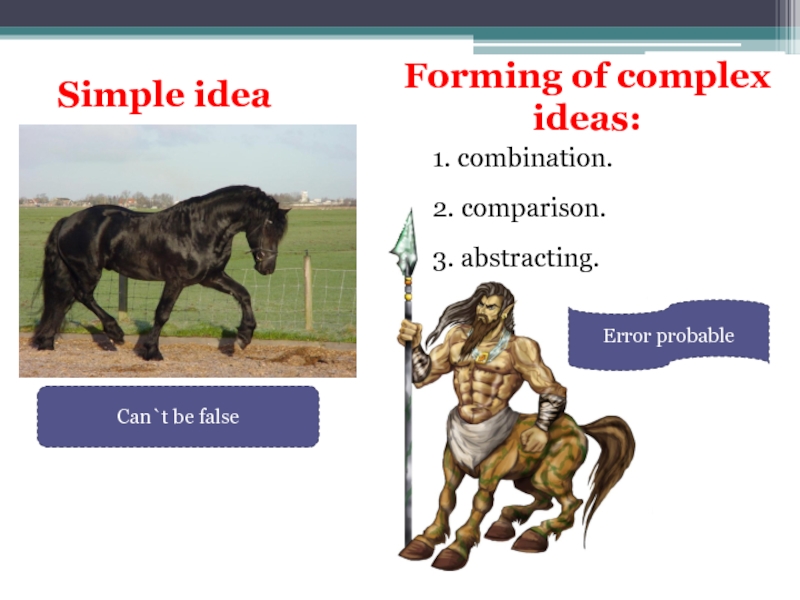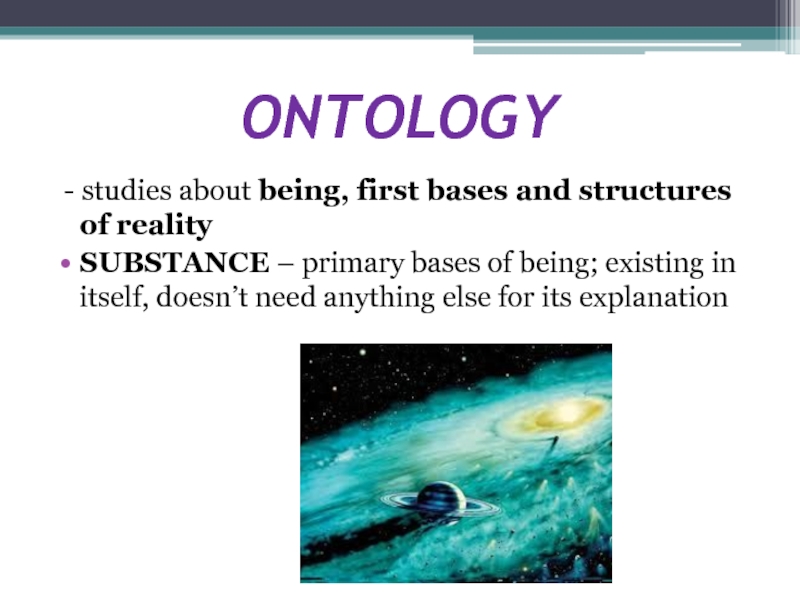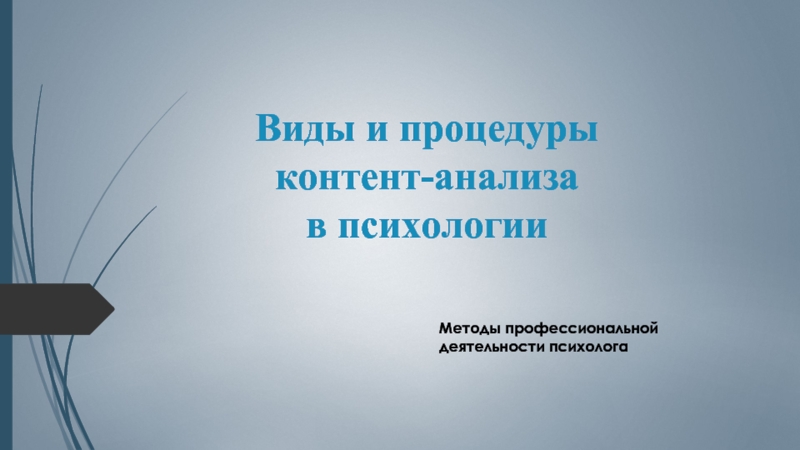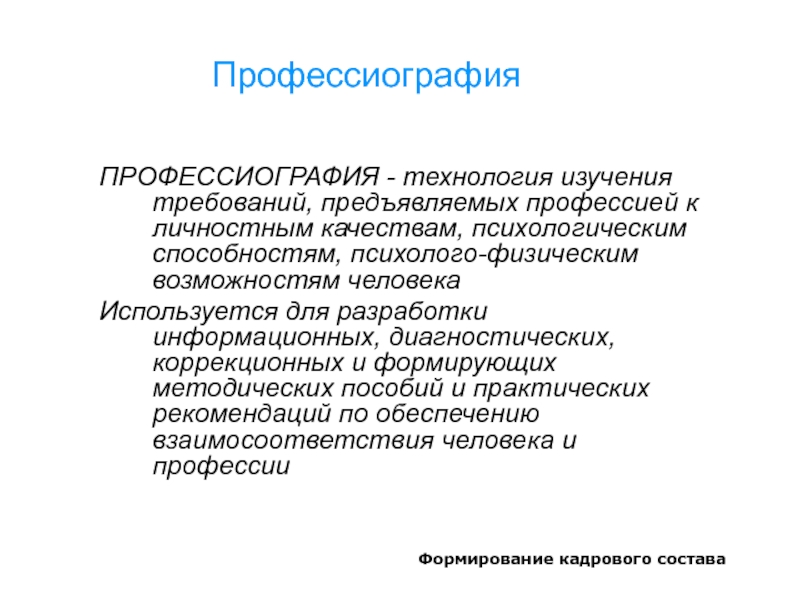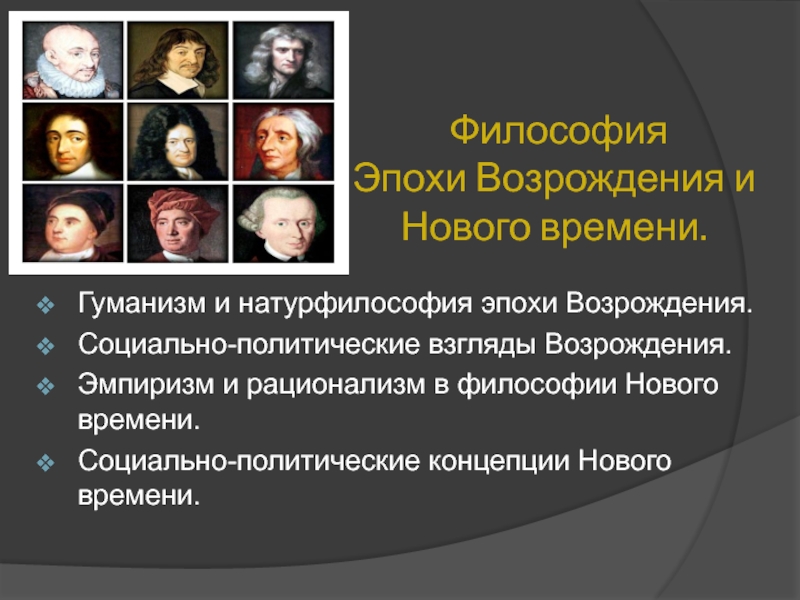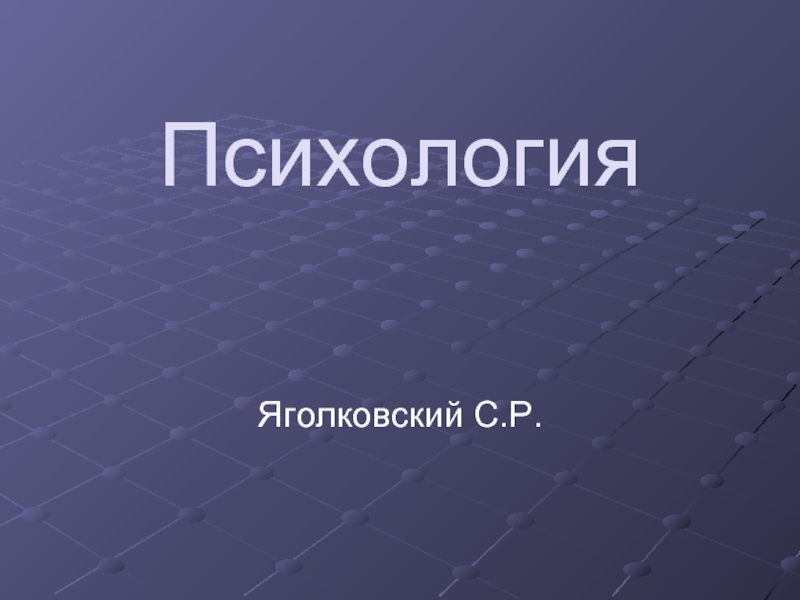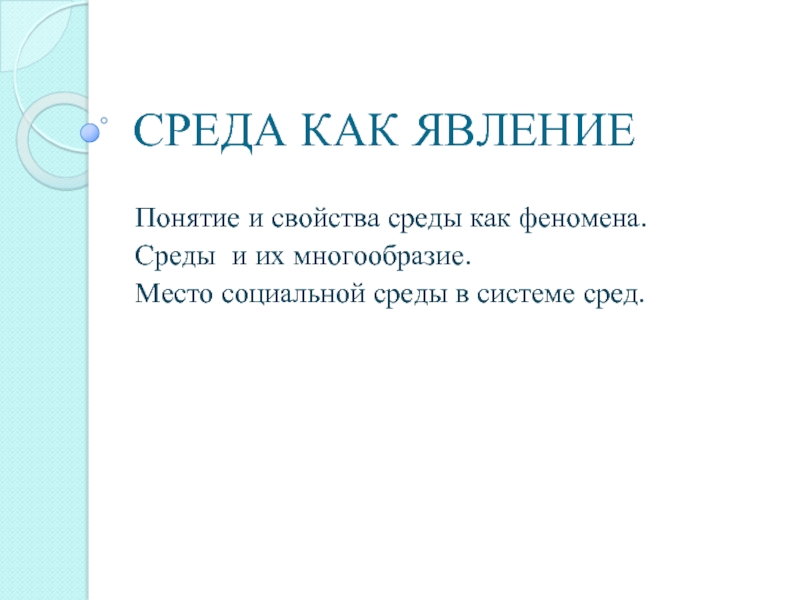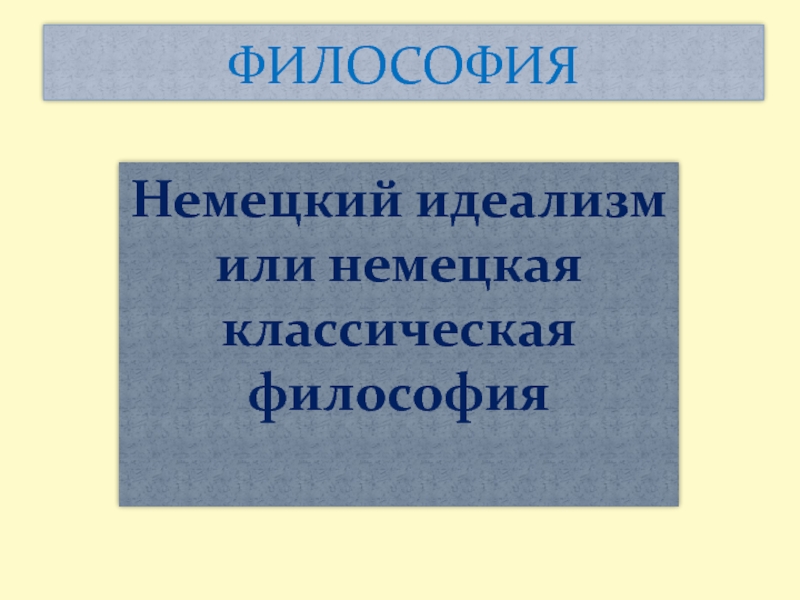- Главная
- Разное
- Дизайн
- Бизнес и предпринимательство
- Аналитика
- Образование
- Развлечения
- Красота и здоровье
- Финансы
- Государство
- Путешествия
- Спорт
- Недвижимость
- Армия
- Графика
- Культурология
- Еда и кулинария
- Лингвистика
- Английский язык
- Астрономия
- Алгебра
- Биология
- География
- Детские презентации
- Информатика
- История
- Литература
- Маркетинг
- Математика
- Медицина
- Менеджмент
- Музыка
- МХК
- Немецкий язык
- ОБЖ
- Обществознание
- Окружающий мир
- Педагогика
- Русский язык
- Технология
- Физика
- Философия
- Химия
- Шаблоны, картинки для презентаций
- Экология
- Экономика
- Юриспруденция
Epistemology problems new age philosophy (XVII-XVIII) презентация
Содержание
- 1. Epistemology problems new age philosophy (XVII-XVIII)
- 2. Historical conditions Specific Development of capitalism; Social
- 3. EMPIRICISM RATIONALISM “empirio”- Lat. experience The
- 4. Key word: Cognition – totality
- 5. Deduction – process of logical conclusion from
- 6. Representatives of empiricism Francis Bacon (1561-1626) Thomas Hobbes (1588-1679) John Locke (1632-1704) George Berkley (1685-1753)
- 7. Representatives of rationalism: Wilhelm Leibniz (1646-1716) Baruch B. Spinoza (1632-1677) Rene Des Cartes (1596-1650)
- 8. Real knowledge is based on sensual experience.
- 9. Idols of Cognition Idols of Kin
- 10. Ways of acquiring knowledge
- 11. John Locke Tabula rasa There is nothing
- 12. Simple idea Forming of complex ideas: 1.
- 13. David Hume 1711-1766 We have no any
- 14. Classical rationalism Classical rationalism – real knowledge
- 15. Rene Des Cartes Method of cognition 1.
- 16. Science system according Des Cartes metaphysics physics All another sciences
- 17. ONTOLOGY - studies about being, first
- 18. Thank you! by Natalya Spitsa
Слайд 2Historical conditions
Specific
Development of capitalism;
Social revolutions;
Weakness of influence of church.
Philosophy start
Problem of perception became primary;
Struggle between empiricism and rationalism.
Слайд 3EMPIRICISM
RATIONALISM
“empirio”- Lat. experience
The one source of knowledge is experience, when
Francis Bacon
Thomas Hobbes
John Locke
George Berkley
David Hume
“ratio” – Lat. Mind
Real knowledge possible only from reason (mind), not from experience
Existing of’ “inborn ideas”, from which logically all knowledge can be taken out.
Rene Des Cartes
Baruch B. Spinoza
Wilhelm Leibniz
Слайд 4Key word:
Cognition –
totality of processes & methods of discovering knowledge about
Слайд 5Deduction – process of logical conclusion from general to particular
Induction –
Слайд 6Representatives of empiricism
Francis Bacon
(1561-1626)
Thomas Hobbes
(1588-1679)
John Locke
(1632-1704)
George Berkley
(1685-1753)
Слайд 7Representatives of rationalism:
Wilhelm Leibniz
(1646-1716)
Baruch B. Spinoza
(1632-1677)
Rene Des Cartes
(1596-1650)
Слайд 8Real knowledge is based on sensual experience.
Francis Bacon
Where is from
!
?
False knowledge is the results of:
Hurried & too general conclusions
Speculative thinking without empirical experience
Specific mistakes of thinking (idols)
Слайд 11John Locke
Tabula rasa
There is nothing in the mind which was not
Ideas of person
Simple
Complicated
Слайд 12Simple idea
Forming of complex ideas:
1. combination.
2. comparison.
3. abstracting.
Can`t be false
Error probable
Слайд 13David Hume
1711-1766
We have no any reason to think that phenomenon A
we observed many times that B comes after A.
Слайд 14Classical rationalism
Classical rationalism
– real knowledge can be derived only from the
Слайд 15Rene Des Cartes
Method of cognition
1. Truth to be considered the thing
2. To divide all complicated problems on the simple ones.
3. To come from known to unknown? From simple to more complicated.
4. To involve everything in logical chains of research.
«Cogito ergo sum» — «Think, then, exist»
